Abstract
OBJECTIVES. This study sought to identify the strategies used by syringe exchange programs to establish their legality. METHODS. Statutes, court decisions, published studies of exchange programs, and news stories were reviewed, and telephone interviews were conducted with syringe exchange personnel. RESULTS. Twenty-seven exchanges have been authorized by amendments to or judicial interpretations of state drug laws or by administrative action under such laws, or operate in a state that has no laws regulating needles. At least 13 programs operate under claims of legality based on local interpretations of state law, principally public health law. The remaining syringe exchanges operate without a claim of legality. CONCLUSIONS. The deployment of syringe exchanges has been hindered by concerns about their legal status. This study shows that the applicability of drug laws to syringe exchange is open to dispute, and that local public health authorities may under some circumstances rely on their own legal authority to fund or operate syringe exchange programs.
Full text
PDF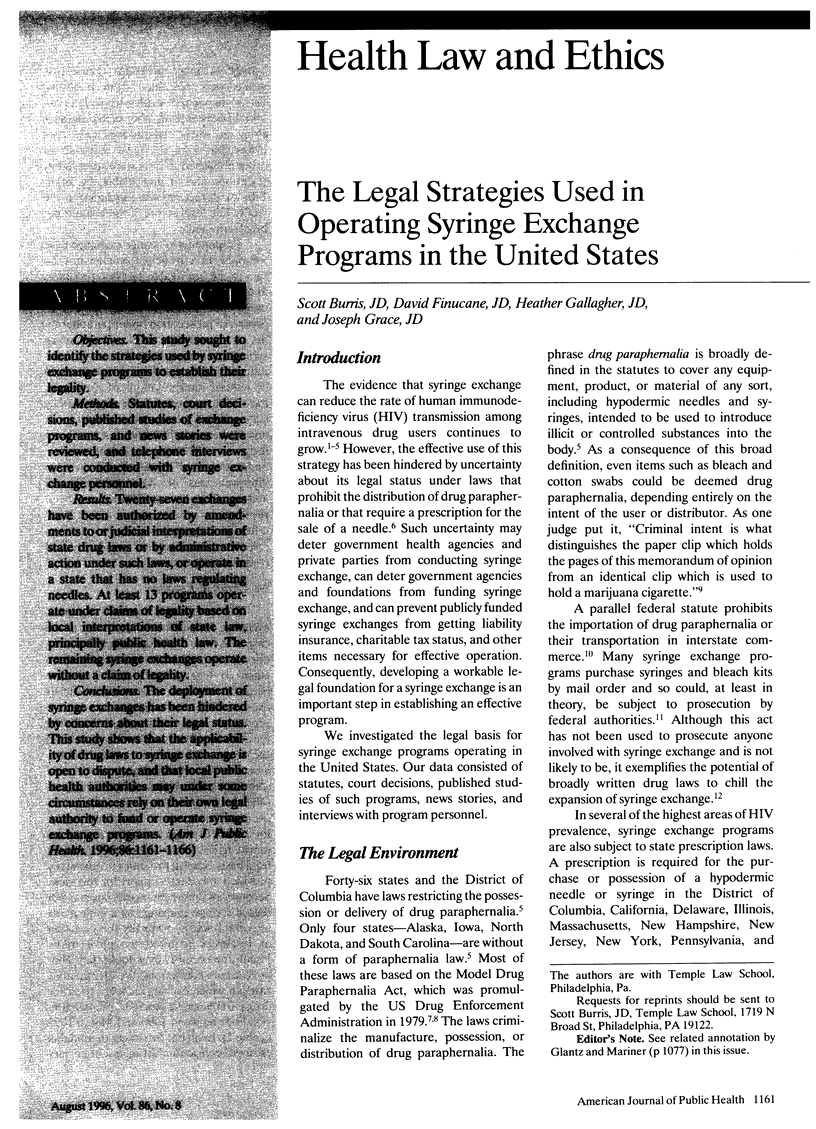
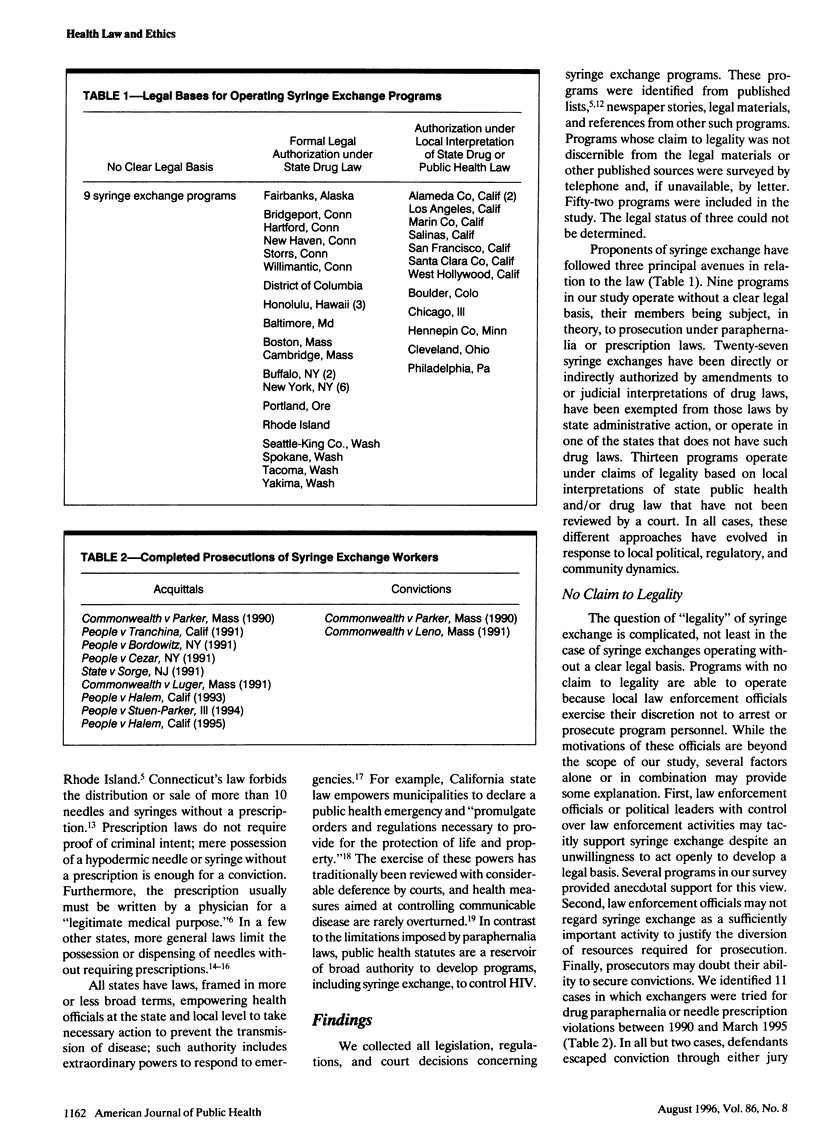
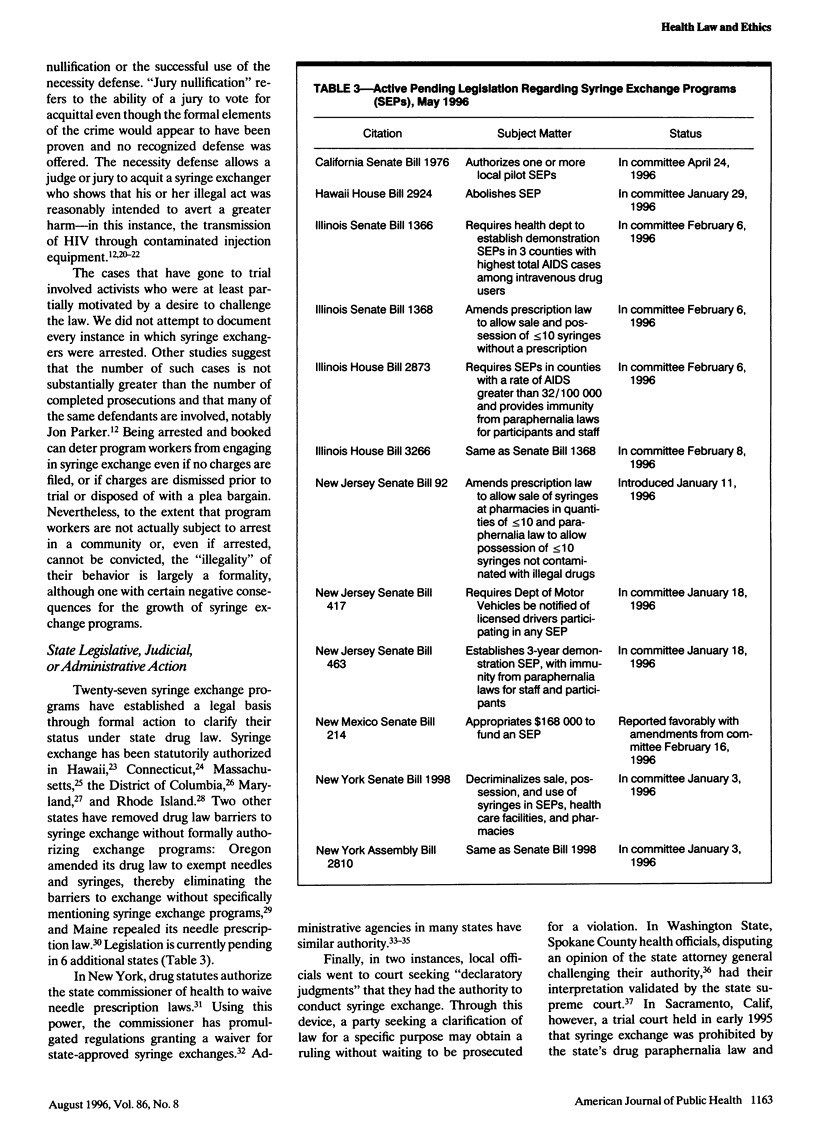
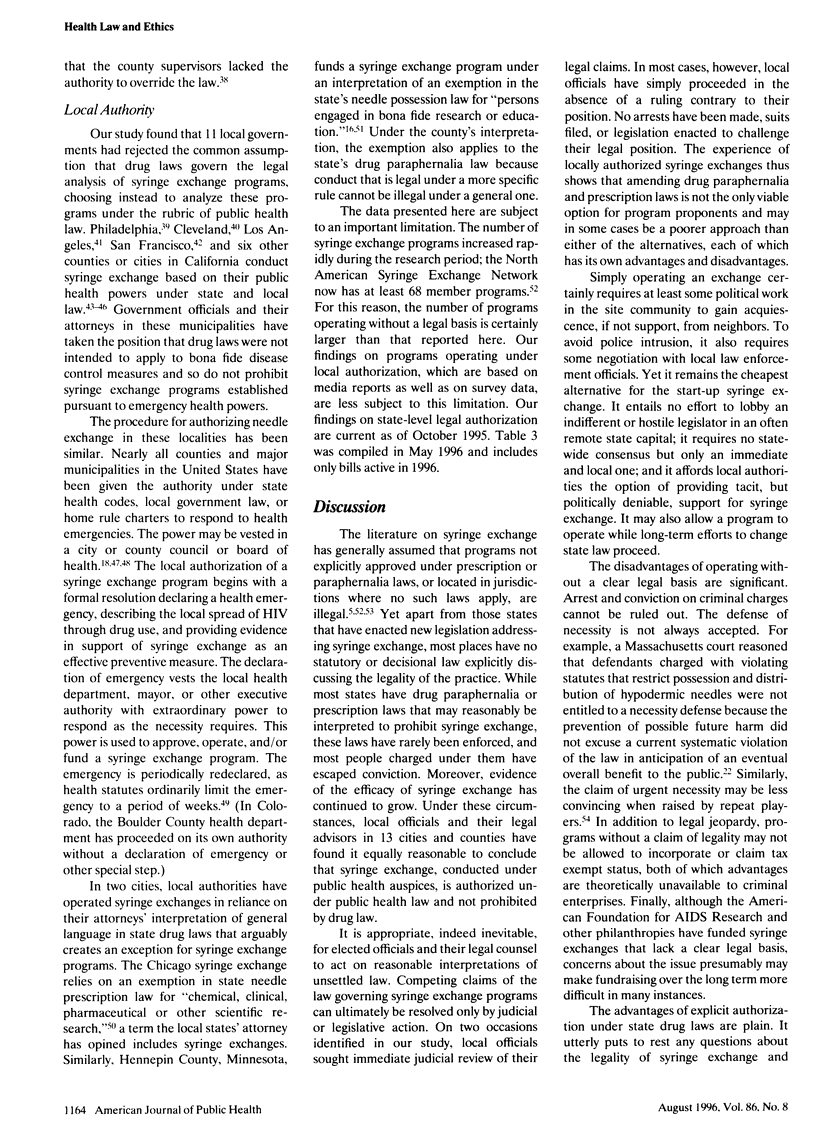
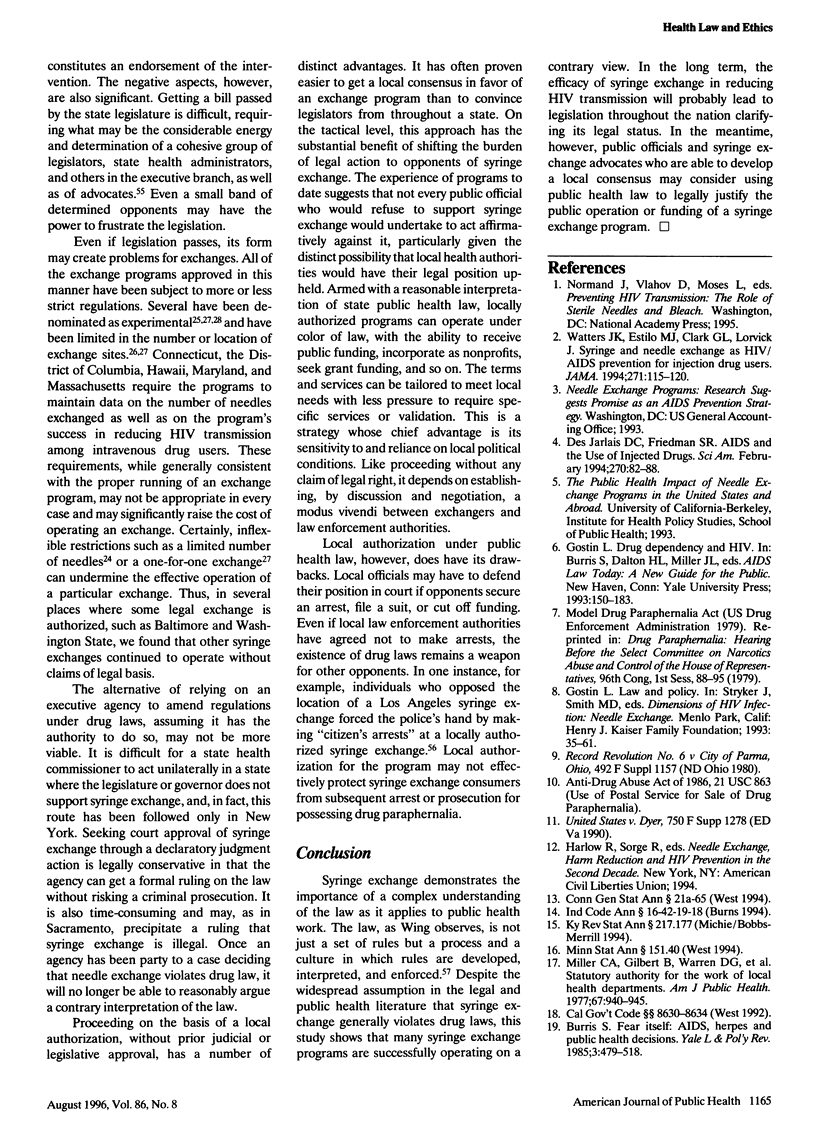
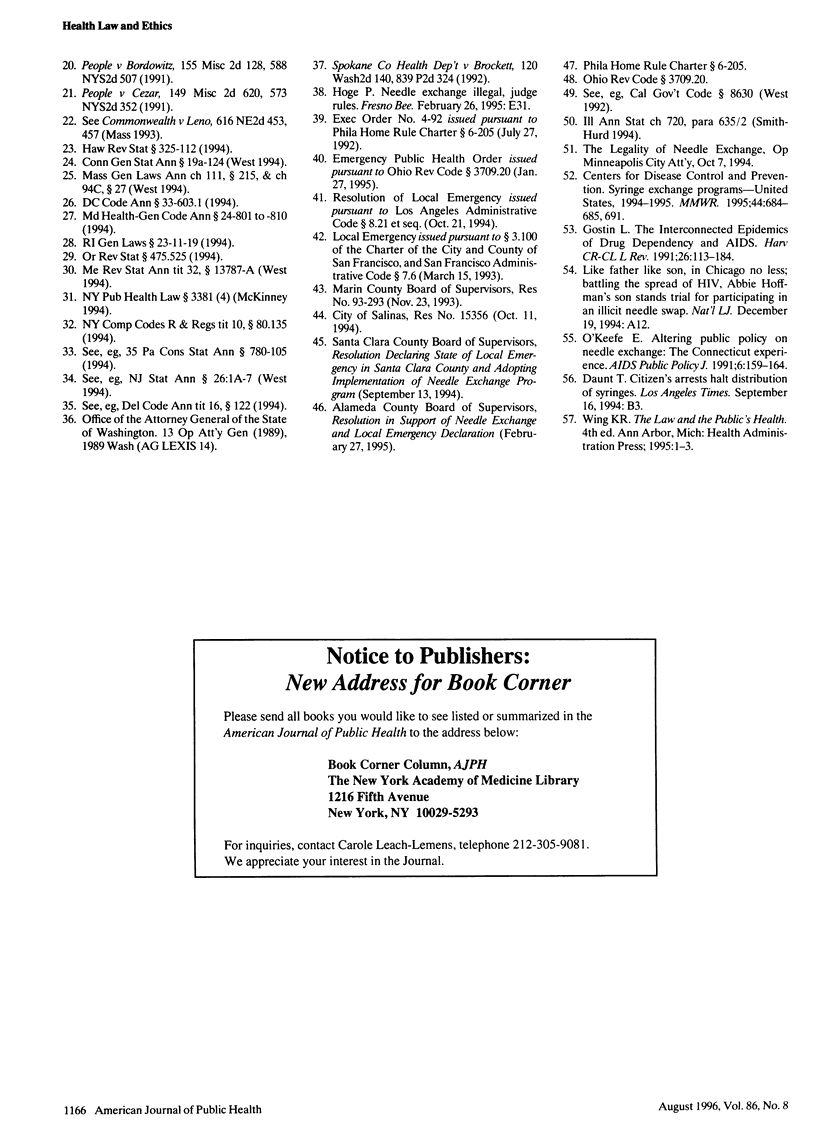
Selected References
These references are in PubMed. This may not be the complete list of references from this article.
- Burris Scott. Fear itself: AIDS, herpes and public health decisions. Yale Law Policy Rev. 1985 Spring;3(2):479–518. [PubMed] [Google Scholar]
- Jarlais D. C., Friedman S. R. AIDS and the use of injected drugs. Sci Am. 1994 Feb;270(2):82–88. doi: 10.1038/scientificamerican0294-82. [DOI] [PubMed] [Google Scholar]
- Miller C. A., Gilbert B., Warren D. G., Brooks E. F., DeFriese G. H., Jain S. C., Kavaler F. Statutory authorizations for the work of local health departments. Am J Public Health. 1977 Oct;67(10):940–945. doi: 10.2105/ajph.67.10.940. [DOI] [PMC free article] [PubMed] [Google Scholar]
- Watters J. K., Estilo M. J., Clark G. L., Lorvick J. Syringe and needle exchange as HIV/AIDS prevention for injection drug users. JAMA. 1994 Jan 12;271(2):115–120. [PubMed] [Google Scholar]


